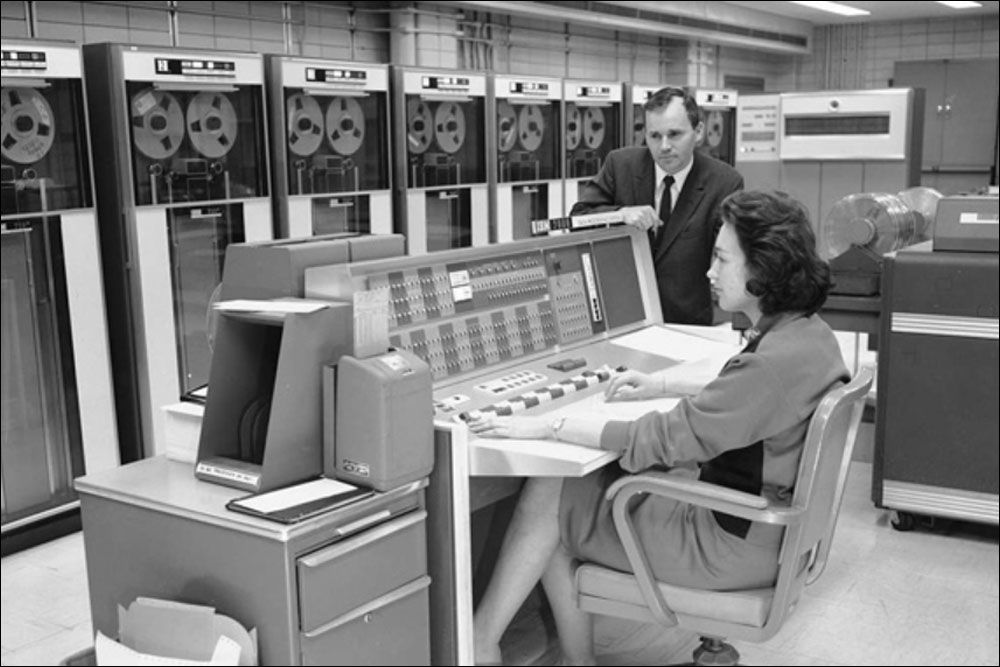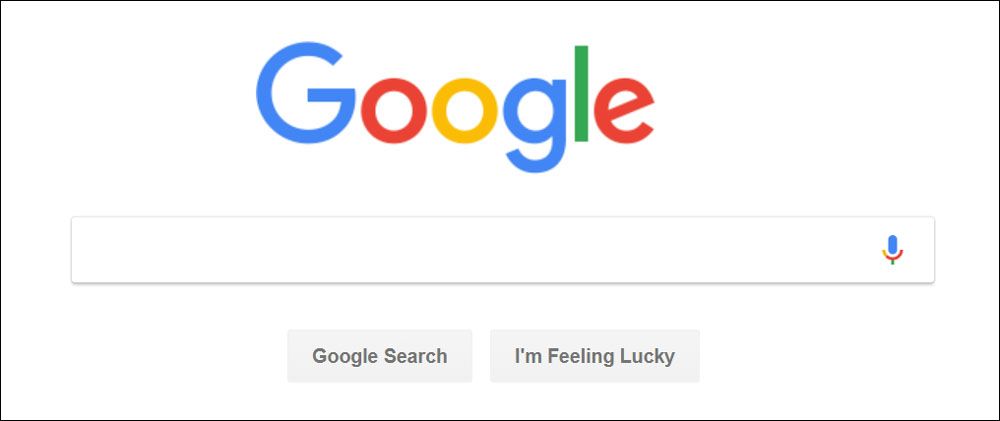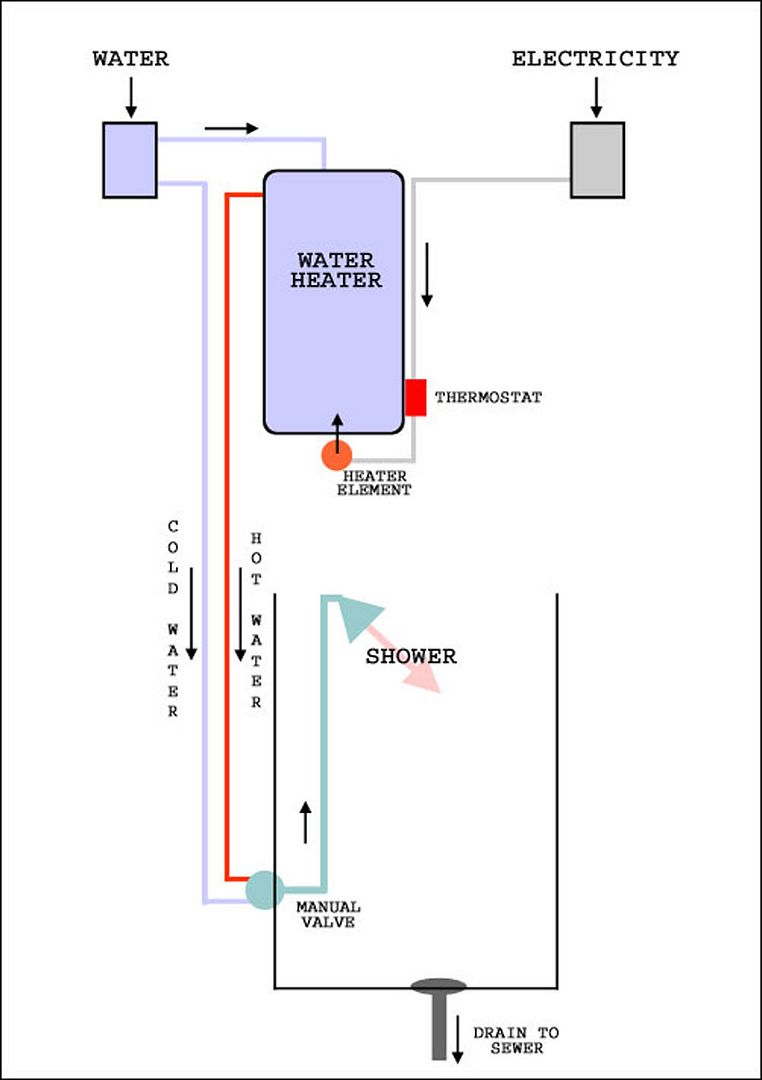An Introduction to "Thinking In Systems" - Part Four: The Third Input - Information

If Matter is the physical body of the car you drive each day, and Energy the gasoline and electricity that makes it run, then Information is the driver. Each is important and all three must work in harmony to successfully get to where you want to go.
Matter moves in circles from base elements up the line of organization on the up side of its Circle, forming more and complex things. Later as age and wear takes it toll, the Matter of that car begins to deconstruct, to rust and fall apart until at one point on the down side of its Circle, its sitting in a junk yard being picked for parts before the remains are taken to the melting pot to be born again.
Energy on the other hand begins as a concentrated source, like the electricity in a battery or the gasoline in the tank, and in small parts breaks down, releasing energy to perform work. It always generates a little bit of waste heat when it works. Whether its the radiating heat off a hot engine block, to the frictional heat when you apply the brakes and the brake shoes rub on the rotors, and even the tiny bit of heat generate by friction as the air passes over the body of the car in motion. Bit by bit, Energy is turned into waste heat and its usefulness to us ends.
Information has its actions too, but before we talk about that, we must clear up a big misconception about Information.
.
Information versus Data
Some of you younger Green Wizards might have a hard time placing the equipment in the picture with this post. Those of us in our senior years easily recognize what for us in our youth were top of the food chain computers. They used large reels of magnetic tape to store their data and run their programs. The first magnetic hard drive to have a one gigabit storage capacity was invented in 1980 and was roughly the size of a refrigerator. Compare that to the computer I'm writing this on. I have the side off it right now, and you could probably put the parts into small shoe box with a bit of left over space. Its hard drive has a capacity of 250 gigabits. I have two external hard drives attached, one at 250 gigabits and a second one at 1.5 terabits (or 1500 gigabits).
(My oh my, how times have changed!)
Its easy to believe in the "Myth of Progress", that things will get more and more complex and their capacity to store knowledge will grow and grow until that ultimate joining of Human and Machine, the fabled "Singularity" happens.
In case you live in a hut in the woods and have never heard of it, the "Singularity" is the idea that machines, aka computers, will continue to grow in capacity until they reach a point that they can download and store a human consciousness? At which point we all could upload ourselves into the Cloud, and then trade our aging meat sack bodies for shiny new mechanical ones. That's the dream for the techno crowd.
So how much storage?
If your brain were a computer, how much storage space would it have?
As you can read in the article at Gizmodo.com, the estimate is all over the place but still given that we have increased storage capacity at an almost exponential rate, it can't be far off, can it?
Forget for a moment that we are running out of the rare earth minerals we need to build electronics. That China controls about 95% of those meager reserves. And that's ignoring the energy needs to make these shiny robotic bodies which we are running out of as well. Also if we do reach a point where its possible to download a human consciousness, it will certainly be extremely expensive and something only the Ultra Rich can afford. The politics of accepting that a thin slice of the 0.01% Elites get to live in almost immortal mechanical bodies while the rest of the 99% sinks further and further into poverty, I will leave for another discussion.
(Now stop sharpening that pitch fork and put away that rope. Though keep them handy, we may need them soon...)
This is misconception I spoke of, that people say "Information" when they mean "Data". Back in the early days of computers we understood that. Now after nearly 4 decades of Marketing Jingle Words we have forgotten that there is a difference. And its an easy one to give an example to.

I suspect that every one reading this post has seen this page. Probably you are like me and you see it every day of your Life, usually dozens of times, as you use the search engine to find things. My point is, how often is what you seek the first thing that the search engine returns? Leaving aside the paid results highlighted at the top of the list, its often very hard to find what you are looking for with a search engine unless you are very specific. The algorithms that populate our search results have real trouble not just with the quarky way people phrase their searches, but the simple fact is there is an incredible amount of raw data for the algorithm to sort through and some how match to our requirement.
Though computer geeks will yell "A.I., A.I., A. frakin I!"
My reply is "Elephant".
Machine Learning Confronts the Elephant in the Room
When I was young, programmers had a short hand phrase they were taught to always remember, "GIGO", which stands for "Garbage In, Garbage Out".
No matter how much data you have, and search engine companies are racing to vacuum it all up onto their servers, the results are only as good as the filters you use to view it with. If you can't find what you seek because its hidden behind not a forest but an Amazon Rain Forest of facts and images, then its no use to you.
As a side note, I always laugh when I see the second button, the "I'm Feeling Lucky" option for a search. Its a button to offer you up a meaninglessly random search. Why would they do that? You're here to find out Information you need and the person giving you that information says "Hey what about those Cardinals (a baseball team in St Louis)". Its almost like they want you to stay on their site, even if you can't find what you want? Maybe their business model isn't to give you information on your searches but to just offer you interesting pages that have their advertising on it?
I could be wrong....
.
Information Requires Focus and Intent
One of the pioneering theorists of cybernetics, Gregory Bateson, defined Information as "The difference that makes a difference."
That is a subtle distinction and one worth pondering for a moment.
Information within the mental discipline "Thinking In Systems" we are discussing requires a filter, something that answers a question or gives a solution.
Greer calls this an "Intent".
That's a good word for us to use too, since most of what you will be doing with Green wizardry has a purpose and will cause an affect. Take the example which we began this series with, a hot shower. Consider all the little bits of data in that original simple diagram.

These are some of the data points I can see in this diagram:
- "Is there water?" Yes/No
- "Does it have enough pressure to flow?" Yes/No
- "What is its temperature coming into the home?" Value
- "Do we have electricity?" Yes/No
- "Is it the proper voltage?" Yes/No
- "Is the thermostat working correctly?" Yes/No
- "What is the thermostat set at?" Value
- "Does the tank have mineral sediment inside which decrease the efficiency of the heating element?" Yes/No
- "If so, how much energy do I lose?" Value
- "How much heat lose do I have from the water heater into the surrounding air?" Value
- "Is it set on a timer?" Yes/No
- "Am I within the set time or outside of it?" Yes/No
- "What is the temperature of the water going out of the water heater?" Value
- "How far is the water heater from the shower?" Value
- "Waht is the air temperature in the basement?" Value
- "How much heat lose do I have from the copper pipes?" Value
- "What is the temperature of the bathroom where I will shower?" Value
- "If it is cold, do I need to turn on the furnace to heat up the room? Yes/No
- "When I turn on the hot water, how hot does it feel to my hand?" Value
- "How much cold water do I need to add, to make the water feel comfortable?" Value
- "How much water must I turn on of both, to provide a satisfactory shower pressure?" Value
- "How long will the hot water last at that setting, before the shower turns cold?" Value
- "Does my shower fog up the room, requiring a ventilation fan to be turned on?" Yes/No
- "How much energy goes down the drain as waste heat from the water?"
- "Do I have a spouse? Do I have kids?"> Yes/No
- "How long before the others start pounding on the door and saying they need to use the bathroom too?" Value
- "Should I have just taken a long relaxing bath instead, with some good music and a book handy? Yes/No
All of these Yes/No answers and Values generated by the questions are data for our "Intent". While most of us are just worried about the four questions that I have highlighted, all of the other data actually affects our Intent, but their affect is very small and is normally ignored in answering our larger Intent.
What if our Intent is not to have a hot shower, but to have the most energy efficient shower possible with our current system? Suppose that energy usage becomes of Prime Importance?
Then the other points of data begin to matter. When we change our Intent then we must change our Focus. The subjective "feels good" result that we got from focusing on the highlighted data become secondary when we look at where we can cut energy lose and increase the efficiency of our system.
Evaluating data falls into two levels of processing, "Broad and Narrow".
The highlighted data in the above list, provides us with a very narrow band of Inputs with which to make the decision on our Intent. The rest of the list provides a broad band of Inputs that fall outside of our Intent. Changing our Intent, changes which data now falls into that narrow band.
In closing this week's lesson, take a moment to read this thread on the Green Wizards Forums:
Downside of Leasing Solar Power / Battery Bank Discussions
The thread begins with an article about the downsides of leasing a solar system, and how the life of that lease may affect your ability to sell you home later. It then veers left and begins to discuss what kind of equipment you would need for a emergency battery bank and that equipment's performance. Its interesting to consider that discussion from a "Thinking in Systems" point of view and all of the data being presented as options and choices that will effect the Intent of providing power for essential systems like a refrigerator and freezer, during a temporary power outage.
We will return in two weeks to conclude this series.